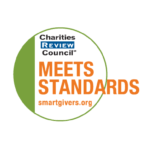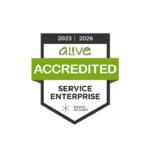Through federal Older Americans Act funding, Trellis supports home and community-based services that help older adults meet basic needs and live stable and secure lives. These services help people with low incomes and those facing other disparities in the seven-county metro area. The formula for distributing OAA funds across Minnesota is currently being debated. Add your voice to the Minnesota Board on Aging Request for Comment on the Intrastate Funding Formula to ensure an equitable formula for metro older adults.
Chali was born in Ethiopia, in a region called Oromia Negele Arsi. In November, she marked seven years since she came to the U.S. Her immigration was a difficult transition for her, facing language barriers, cultural differences and lacked a support system. She also didn’t have government assistance, which made it hard for her to get housing and access to food. The Brian Coyle Center, a Pillsbury United Communities program funded by Trellis with Older Americans Act dollars, provided essential services to help with her transition.
Chali first heard about the Brian Coyle Center from others who had immigrated from Ethiopia. They told her it was a safe place with people who understood her culture and would help connect her to resources. Chali was amazed by the support, including help reading letters from home, finding housing and work, classes and a food shelf. If they couldn’t help her with something, they referred her to others who could. She found the English classes particularly helpful as she learned to read and write in a new language.
Chali had been sleeping from place to place and asking friends to stay at their houses before Brian Coyle helped her get an apartment and furnish it. They also helped her get a work permit and find a job. “I work to provide for my two daughters, who are sick and on dialysis back home. They have issues with kidney failure. I’m trying to do as much as I can to help them.”
“The most major thing was my immigration case,” says Chali. “The workers here helped me find out how the process was going. I didn’t know my status for two years, which was very stressful. Coming here made things a lot easier for me.”
“Without a doubt, I would tell people to come here,” says Chali. She is grateful to have found a place where people understand her language and culture and help her meet her needs.



